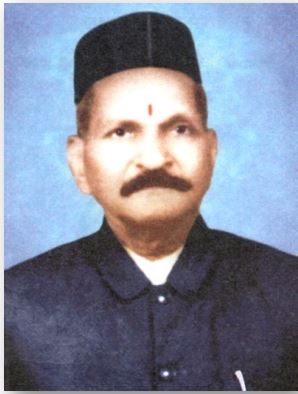Economics
About Department
The department of Economics was established since the inception of the college i.e. 1961. At Present, Dr. Nilam M.Chhangani is working as the head of the department since June 2017. It is one of the major departments of the faculty of Humanities where strength of the students is increasing day by day.
The Department of Economics was established in year 1961. Subsequently, the department has had a good a fortune of being shaped and developed under the leadership for academicians like
HOD Of The Department
1961-67 : Shri. Anil Fadake
1967-2003 : Dr. Ashok Gadhikar
2004-2017 : CHB Lecturer
At Present, Dr. Nilam M.Chhangani is working as the head of the department since June 2017. It is one of the major departments of the faculty of Humanities where strength of the students is increasing day by day.
Economics is the study of how people decide to use resources on an individual and a collective basis. It examines the kinds of work people do and how much time they spend doing it. Economics also looks at production, investments, taxation and how people spend and save money.
Before you commit yourself to spending time and effort studying economics, it helps to know the advantages of doing so. Economics is the study of how societies, governments, businesses, households, and individuals allocate their scarce resources. Our discipline has two important features.
First, we develop conceptual models of behaviour to predict responses to changes in policy and market conditions. Second, we use rigorous statistical analysis to investigate these changes. Economists are well known for advising the president and congress on economic issues, formulating policies at the Federal Reserve Bank, and analyzing economic conditions for investment banks, brokerage houses, real estate companies, and other private sector businesses. They also contribute to the development of many other public policies including health care, welfare, and school reform and efforts to reduce inequality, pollution and crime.
The study of economics can also provide valuable knowledge for making decisions in everyday life. It offers a tool with which to approach questions about the desirability of a particular financial investment opportunity, whether or not to attend college or graduate school, the benefits and costs of alternative careers, and the likely impacts of public policies including universal health care and a higher minimum wage.
The complementary study of econometrics, the primary quantitative method used in the discipline, enables students to become critical consumers of statistically based arguments about numerous public and private issues rather than passive recipients unable to sift through the statistics. Such knowledge enables us to ask whether the evidence on the desirability of a particular policy, medical procedure, claims about the likely future path of the economy, or many other issues is really compelling or whether it simply sounds good but falls apart upon closer inspection.
HOD Of The Department
1961-67 : Shri. Anil Fadake
1967-2003 : Dr. Ashok Gadhikar
2004-2017 : CHB Lecturer
At Present, Dr. Nilam M.Chhangani is working as the head of the department since June 2017. It is one of the major departments of the faculty of Humanities where strength of the students is increasing day by day.
Economics is the study of how people decide to use resources on an individual and a collective basis. It examines the kinds of work people do and how much time they spend doing it. Economics also looks at production, investments, taxation and how people spend and save money.
Before you commit yourself to spending time and effort studying economics, it helps to know the advantages of doing so. Economics is the study of how societies, governments, businesses, households, and individuals allocate their scarce resources. Our discipline has two important features.
First, we develop conceptual models of behaviour to predict responses to changes in policy and market conditions. Second, we use rigorous statistical analysis to investigate these changes. Economists are well known for advising the president and congress on economic issues, formulating policies at the Federal Reserve Bank, and analyzing economic conditions for investment banks, brokerage houses, real estate companies, and other private sector businesses. They also contribute to the development of many other public policies including health care, welfare, and school reform and efforts to reduce inequality, pollution and crime.
The study of economics can also provide valuable knowledge for making decisions in everyday life. It offers a tool with which to approach questions about the desirability of a particular financial investment opportunity, whether or not to attend college or graduate school, the benefits and costs of alternative careers, and the likely impacts of public policies including universal health care and a higher minimum wage.
The complementary study of econometrics, the primary quantitative method used in the discipline, enables students to become critical consumers of statistically based arguments about numerous public and private issues rather than passive recipients unable to sift through the statistics. Such knowledge enables us to ask whether the evidence on the desirability of a particular policy, medical procedure, claims about the likely future path of the economy, or many other issues is really compelling or whether it simply sounds good but falls apart upon closer inspection.







